Space
Sign up for our newsletter
We summarize the week's scientific breakthroughs every Thursday.
-
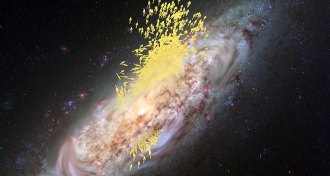 Astronomy
AstronomyThe Milky Way feasted on a smaller galaxy 10 billion years ago
The Milky Way swallowed another galaxy billions of years ago, and the leftover stars are still roaming the sky.
-
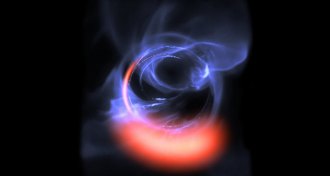 Astronomy
AstronomyThree gas clouds nearly grazed the edge of the Milky Way’s black hole
Gas clumps cozy up to the Milky Way’s enormous black hole, new observations reveal.
-
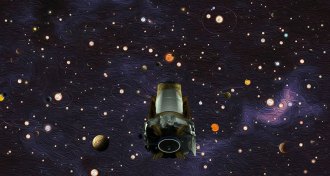 Astronomy
AstronomyThe planet-hunting Kepler space telescope is dead
The Kepler space telescope is officially out of fuel and will hunt planets no more, NASA announced.
-
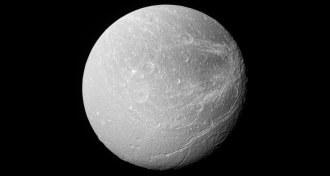 Planetary Science
Planetary ScienceSaturn’s moon Dione has stripes like no others in the solar system
Icy moon Dione has long, thin, bright lines at its equator that run surprisingly parallel to each other for tens to hundreds of kilometers.
-
 Astronomy
AstronomyReaders wonder about a hydrogen wall, pig lung transplants and more
Readers had questions about a glow at the edge of the solar system, pig lung transplants, the use of the word promiscuous and more.
-
 Astronomy
AstronomyThe Neil Armstrong biopic ‘First Man’ captures early spaceflight’s terror
At a time when NASA is considering how to return astronauts to the moon, ‘First Man’ is a sobering reminder of how risky the first giant leap was.
-
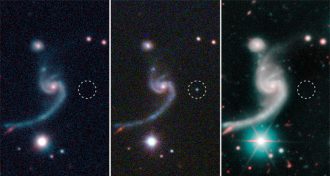 Astronomy
AstronomyThe first observed wimpy supernova may have birthed a neutron star duo
Scientists have spotted a faint, fast supernova for the first time, possibly explaining how pairs of dense stellar corpses called neutron stars form.
-
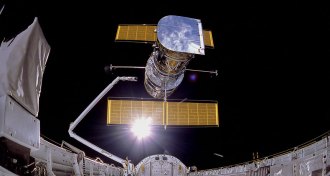 Astronomy
AstronomyIf the past is a guide, Hubble’s new trouble won’t doom the space telescope
Hubble is in safe mode, but astronomers are optimistic that the observatory will keep working.
-
 Animals
AnimalsWhat bees did during the Great American Eclipse
A rare study of bees during a total solar eclipse finds that the insects buzzed around as usual — until totality.
By Susan Milius -
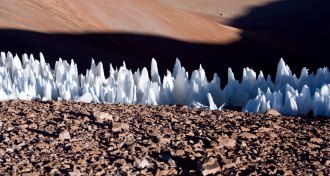 Planetary Science
Planetary ScienceSpiky ice spires may stud the equator of Jupiter’s moon Europa
Fields of jagged ice spires, if they exist, could affect where future spacecraft land on the Jovian moon.
-
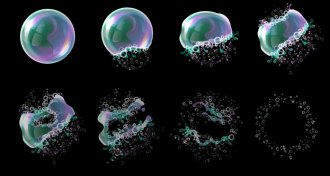 Cosmology
CosmologyThe universe’s continued existence implies extra dimensions are tiny
The strictest limits yet on the size of extra dimensions come from the fact that black holes haven't destroyed the universe.
-
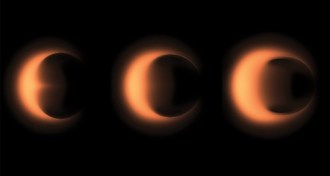 Astronomy
Astronomy‘Einstein’s Shadow’ explores what it takes to snap a black hole’s picture
The new book offers a behind-the-scenes look at the Event Horizon Telescope’s attempt to image a black hole.